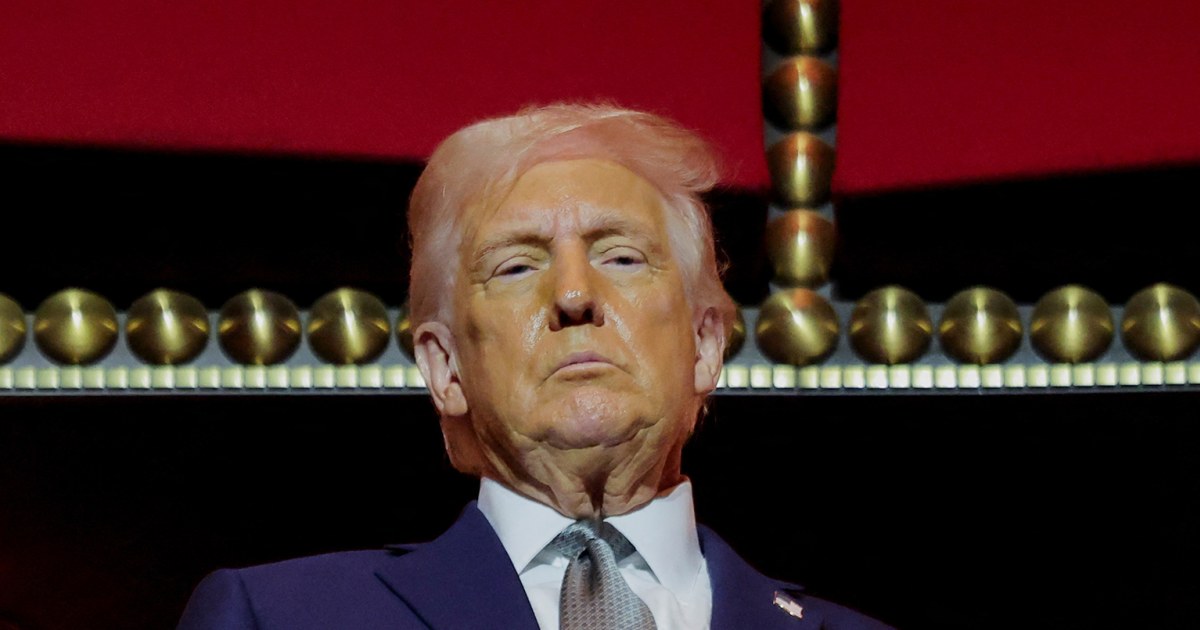Segregation Allowed? Trump's Contractor Policy Shift Sparks Outrage and Legal Challenges
President Trump's recent executive order regarding federal contractors has ignited a firestorm of controversy, sparking accusations of legalized segregation and prompting immediate legal challenges. The order, which prioritizes hiring practices that favor specific groups, has raised serious questions about its constitutionality and its potential impact on diversity and equal opportunity in the workplace. This unprecedented move represents a significant departure from established affirmative action policies and has left many wondering about its long-term consequences.
The Controversial Executive Order: A Breakdown
The core of the controversy lies in the executive order's seemingly contradictory approach to diversity and inclusion. While ostensibly aiming to promote equal opportunity, the order prioritizes the hiring of individuals from specific demographic groups, effectively creating a system of preferential treatment based on factors like race, ethnicity, and origin. Critics argue this effectively reinstates a form of segregation, undermining the principle of meritocracy in federal contracting.
Key Concerns Raised by Legal Experts and Critics:
- Violation of the Equal Protection Clause: Legal scholars have pointed out that the order may violate the Equal Protection Clause of the Fourteenth Amendment, which guarantees equal protection under the law regardless of race, color, or origin. The preferential treatment inherent in the order directly contradicts this fundamental principle.
- Reverse Discrimination Claims: The order's focus on specific demographic groups has raised concerns about potential reverse discrimination lawsuits. Individuals from groups not explicitly prioritized may argue that they are being unfairly disadvantaged.
- Lack of Transparency and Accountability: Critics have expressed concerns about the lack of clear metrics and accountability mechanisms within the order. This lack of transparency makes it difficult to assess the effectiveness and fairness of the new hiring practices.
- Undermining of Affirmative Action: While proponents may argue it's a form of affirmative action, many see it as an undermining of established affirmative action policies, which aim to create a level playing field, not prioritize specific groups over others.
Legal Challenges and the Road Ahead
Several civil rights organizations have already announced their intention to challenge the executive order in court. These legal battles are expected to be protracted and intensely scrutinized, potentially setting important precedents for future employment law. The outcome could significantly impact federal contracting and the broader debate surrounding diversity and inclusion in the workplace.
Potential Legal Arguments:
- Violation of Title VI of the Civil Rights Act of 1964: Plaintiffs will likely argue that the order violates Title VI, which prohibits discrimination on the basis of race, color, or national origin in programs and activities receiving federal financial assistance.
- Due Process Violations: Concerns will likely be raised about potential due process violations for individuals who are denied employment opportunities due to the order's preferential hiring practices.
The Political Fallout and Public Opinion
The executive order has ignited a fierce debate across the political spectrum. Supporters argue it's necessary to address historical injustices and promote economic empowerment within specific communities. However, opponents claim it's discriminatory, divisive, and a setback for equal opportunity. Public opinion is sharply divided, reflecting the deeply entrenched ideological differences surrounding affirmative action and its role in modern society.
Conclusion: A Defining Moment for Equality?
President Trump's executive order represents a significant shift in federal contracting policy, sparking considerable debate and legal challenges. The long-term consequences remain uncertain, but the order will undoubtedly shape the discourse on diversity, inclusion, and equal opportunity in the workplace for years to come. The legal battles ahead will be crucial in determining the constitutionality and the ultimate impact of this controversial policy. This situation highlights the ongoing struggle to find a balance between addressing historical inequities and upholding the principles of fairness and equal opportunity for all. The coming months will be pivotal in determining the future of this policy and its implications for American society.
Keywords: Trump, contractor policy, segregation, executive order, legal challenge, affirmative action, equal opportunity, diversity, inclusion, civil rights, Fourteenth Amendment, Title VI, discrimination, reverse discrimination, employment law, political fallout, public opinion.

